When We Draw A Graph Of Price And Demand, Elasticity Is Defined By Which Of The Following?
Definition: Price elasticity of demand (PED) measures the responsiveness of need afterwards a change in price.

Example of PED
- If toll increases by 10% and demand for CDs fell by xx%
- Then PED = -xx/x = -2.0
- If the price of petrol increased from 130p to 140p and need fell from 10,000 units to 9,900
- % modify in Q.D = (-100/10,000) *100 = – 1%
- % change in cost ten/130 ) * 100= vii.seven%
- Therefore PED = – i/7.7 = -0.thirteen
If you need help computing a percent, encounter: How to calculate a percent
- If cost increase from £50 to £55 and PED was 0.5 How much did quantity demanded autumn?
- 0.5 = % change in QD
- Therefore % QD = -five
Cost Rubberband Demand
Definition: Demand is cost elastic if a change in price leads to a bigger % change in demand; therefore the PED volition, therefore, be greater than 1.
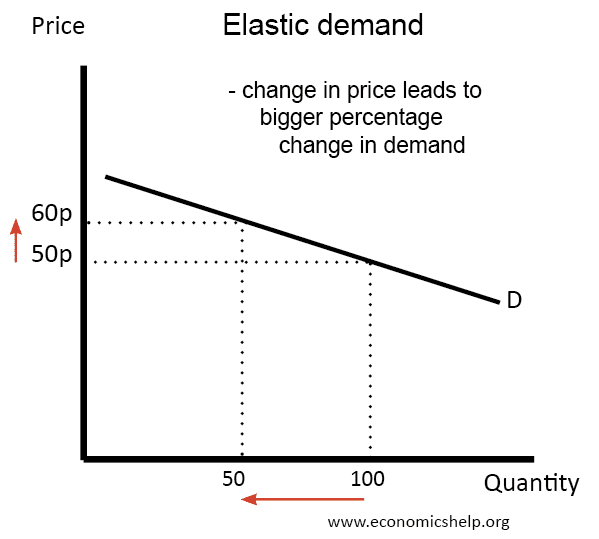
Appurtenances which are elastic, tend to have some or all of the following characteristics.
- They are luxury goods, e.1000. sports cars
- They are expensive and a big % of income e.grand. sports cars and holidays
- Appurtenances with many substitutes and a very competitive market. E.g. if Sainsbury's put upward the toll of its bread in that location are many alternatives, and so people would be price sensitive.
- Bought oft
Price Inelastic Demand
These are appurtenances where a change in price leads to a smaller % alter in demand; therefore PED <one e.g. – 0.5
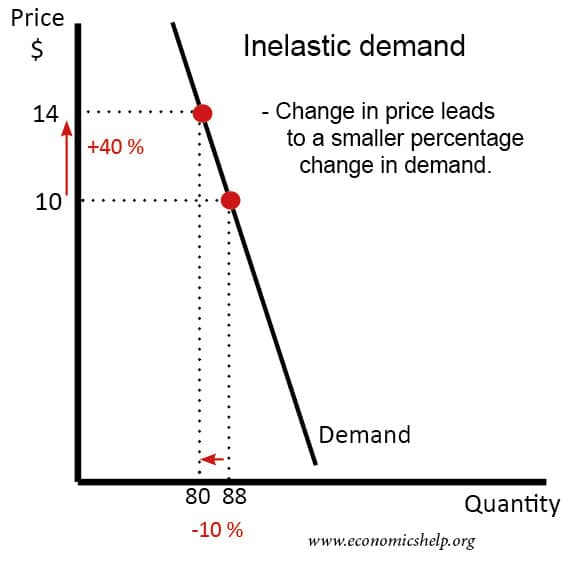
- Inelastic demand PED <ane – Perfectly inelastic PED =0
Goods which are inelastic tend to have some or all of the post-obit features:
- They have few or no close substitutes, eastward.g. petrol, cigarettes.
- They are necessities, east.m. if y'all have a car, you need to proceed buying petrol, fifty-fifty if price of petrol increases
- They are addictive, e.g. cigarettes.
- They cost a modest % of income or are bought infrequently.
- In the brusque term, demand is usually more inelastic because it takes time to observe alternatives
- If the toll of chocolate increased demand would be inelastic considering in that location are no alternatives, however, if the price of Mars increased there are shut substitutes in the class of other chocolate, therefore, demand will exist more elastic.
Using Cognition of Elasticity
1. If need is inelastic then increasing the toll can lead to an increase in revenue. This is why OPEC attempt to increase the cost of oil.
Graph showing increase in Revenue following increase in price
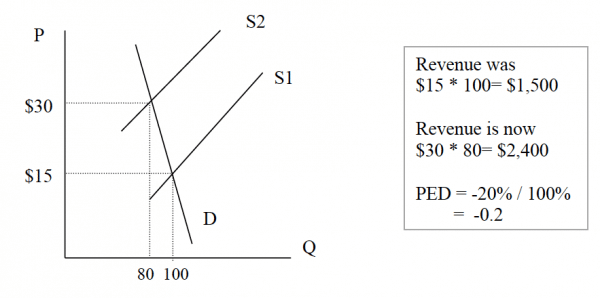
2. If demand is elastic, firms would be unlikely to increase revenue as this could lead to a fall in revenue. Instead, they could attempt advertising to increase make loyalty and make demand more inelastic
three. Price Discrimination. Some people pay higher prices for tickets for trains because their demand is more inelastic.
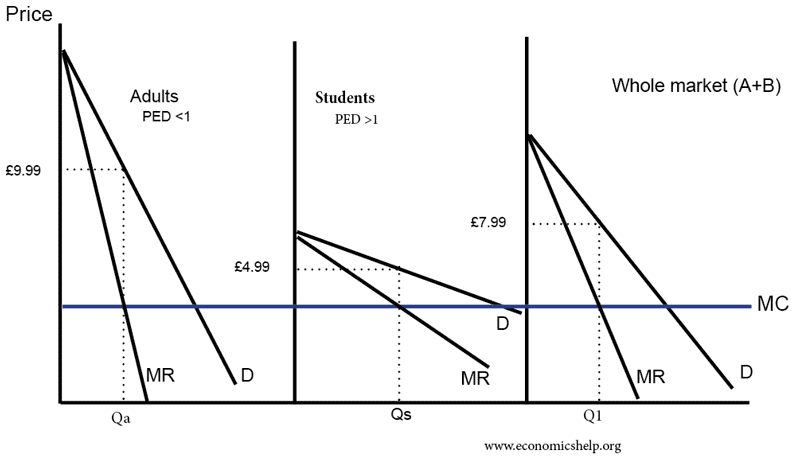
Adults (with more inelastic demand) face college prices. Students with more elastic demand get lower price.
iv. Tax incidence. If need is price inelastic, then a higher tax volition pb to college prices for consumers (e.g. tobacco tax). The revenue enhancement incidence will mainly exist borne past consumers. If demand is price elastic, firms will face a bigger brunt, and consumers will take a lower tax burden.
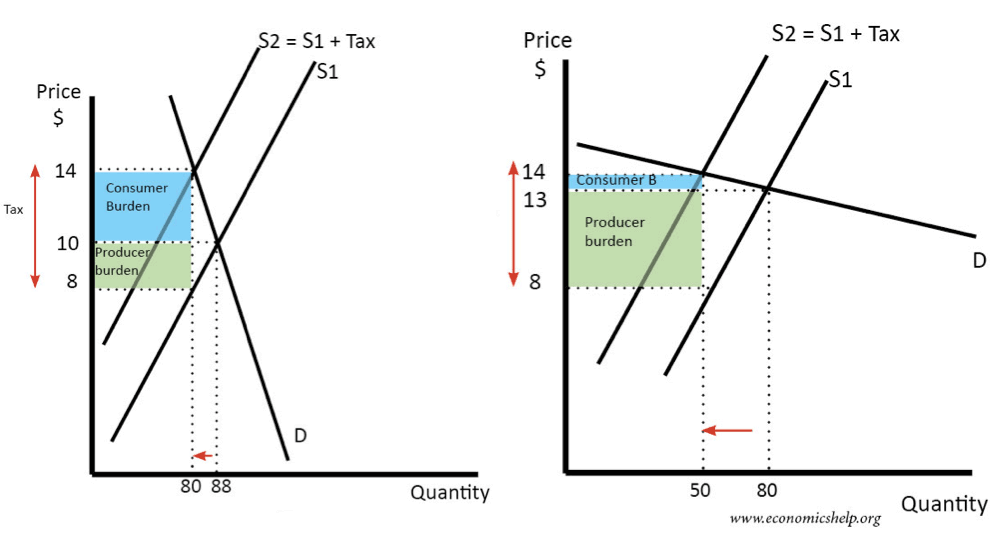
More types of elasticity
- Toll elasticity of supply
- Cross elasticity of need
- Income elasticity of demand
Video – Understanding Elasticity
You can read more at our privacy page, where y'all can change preferences whenever you wish.
When We Draw A Graph Of Price And Demand, Elasticity Is Defined By Which Of The Following?,
Source: https://www.economicshelp.org/microessays/equilibrium/price-elasticity-demand/
Posted by: westfalltherwer.blogspot.com


0 Response to "When We Draw A Graph Of Price And Demand, Elasticity Is Defined By Which Of The Following?"
Post a Comment